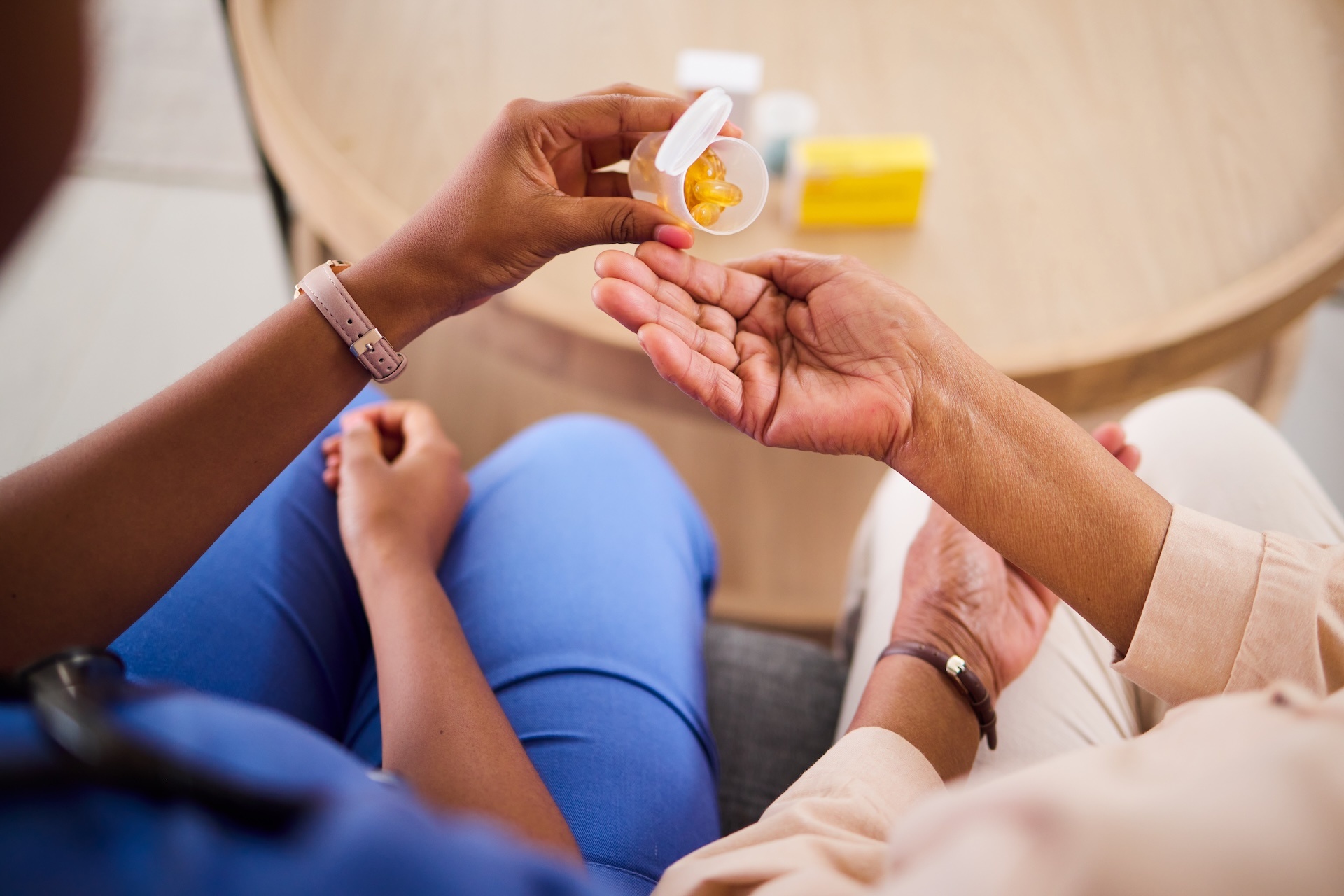Rehab & Detox Support for Opiate Addiction in Culver City


Struggling with opioids? Get compassionate rehab & detox support in Culver City. Find expert opiate addiction treatment near you tailored to your recovery needs.
The opioid crisis has deeply affected lives across Culver City, leaving individuals and families searching for hope and healing. If you or someone you care about is struggling, you’ve likely searched for opiate addiction treatment near you—and found too many generic options.
At The Forge Recovery Center, we offer compassionate, personalized care that treats more than just addiction—we support the whole person. Whether it’s your first time seeking help or you’re exploring a new path forward, we’re here to guide you toward lasting recovery. In this article, we will walk you through detox, treatment options, and how to take the next step.
Understanding Opiate Addiction

Opiate addiction is a chronic medical condition that goes beyond just frequent drug use—it alters how your brain functions and affects nearly every area of life. To understand it clearly, it’s important to distinguish between dependence and addiction. Dependence refers to the body’s physical reliance on a substance, often resulting in withdrawal symptoms when use is stopped. Addiction, on the other hand, includes psychological cravings and compulsive use despite knowing the harm it causes.
Common opiates include heroin, as well as prescription painkillers such as oxycodone (OxyContin), hydrocodone (Vicodin), morphine, and fentanyl. While these medications can be effective for managing severe pain, their highly addictive nature can lead individuals down a dangerous path—especially when misused or used long-term.
Recognizing the signs and symptoms of opiate use disorder early can be life-saving. These may include:
Intense cravings or urges to use
Needing more of the drug to get the same effect (tolerance)
Withdrawal symptoms when not using
Neglecting responsibilities at work, school, or home
Isolation from loved ones
Failed attempts to stop or cut down
Using despite knowing the damage it causes
If you or someone close to you is showing these signs, it’s not just a phase or a bad habit—it may be opiate addiction, and it’s treatable. At The Forge Recovery Center, we offer the support and structure needed to reclaim control and build a healthier, substance-free life.
The Detoxification Process
Detoxification is the first step in overcoming opiate addiction—but it's also one of the most physically and emotionally challenging. Medical detox is a structured process that helps the body safely eliminate opioids while managing the intense withdrawal symptoms that often follow. At The Forge Recovery Center, we use medically supervised detox to lay a stable foundation for long-term recovery.
When someone stops using opiates, the body reacts with a range of withdrawal symptoms that can include nausea, muscle aches, sweating, anxiety, insomnia, agitation, and severe cravings. While not usually life-threatening, these symptoms can be deeply uncomfortable—and without proper medical care, they often lead individuals back to substance use.
That’s why supervised detox is critical. Our clinical team closely monitors each individual, ensuring their safety and adjusting care based on their physical and emotional needs. Medications may be used to ease withdrawal symptoms, reduce cravings, and stabilize mood. Emotional support is also provided to help manage anxiety and build motivation to move forward with treatment.
According to HHS.gov, detox alone is not enough—it must be followed by comprehensive therapy and support to address the psychological and behavioral aspects of addiction. At The Forge Recovery Center, detox isn’t just about getting through withdrawal—it’s about preparing you for the deeper healing ahead.
Are You Struggling with Mental Health or Addiction?
We Can Help. Call Us Now!
CALL: 877-839-1772
Comprehensive Treatment Approaches
Effective opiate addiction recovery requires more than just detox—it demands a full-spectrum approach that treats both the body and the mind. At The Forge Recovery Center, we utilize a combination of Medication-Assisted Treatment (MAT), evidence-based behavioral therapies, and integrated mental health care to give each individual the strongest chance at lasting sobriety.
Medication-Assisted Treatment (MAT)

MAT is a cornerstone of modern opiate addiction treatment. It combines FDA-approved medications with counseling and behavioral therapies to treat substance use disorders holistically. Medications like methadone, buprenorphine (Suboxone), and naltrexone work by targeting the same receptors in the brain that opioids affect, but without producing the same high.
Methadone reduces cravings and withdrawal symptoms while blocking the euphoric effects of opioids.
Buprenorphine partially activates opioid receptors, which helps minimize withdrawal and cravings with a lower risk of misuse.
Naltrexone blocks opioid receptors entirely, preventing any high if opioids are used.
MAT is especially valuable because it helps individuals regain stability in their lives. By reducing the physical grip of addiction, it opens the door to emotional healing and long-term change. At The Forge Recovery Center, we tailor MAT plans based on clinical assessment and the individual’s recovery goals, ensuring safety, comfort, and effectiveness.
Behavioral Therapies
While MAT addresses the physical side of addiction, behavioral therapy is essential for reshaping thoughts, behaviors, and coping strategies. One of the most effective approaches is Cognitive Behavioral Therapy (CBT). CBT helps clients identify negative thought patterns, build healthy responses to stress and triggers, and develop new ways of thinking that support recovery.
We also offer group therapy, which builds a powerful sense of connection and community. In a group setting, clients share their stories, support each other, and gain perspective on their own challenges through the experiences of others. This peer-driven support can significantly reduce feelings of isolation and increase accountability.
Addressing Co-Occurring Disorders
Many individuals struggling with opiate addiction also face co-occurring mental health disorders, such as depression, anxiety, PTSD, or bipolar disorder. These conditions often fuel addiction, and if left untreated, they can sabotage recovery efforts. That’s why we provide integrated dual diagnosis care, treating both substance use and mental health issues simultaneously.
Our team of licensed therapists, psychiatrists, and addiction specialists work together to create personalized treatment plans that address the full spectrum of each client’s needs—emotionally, mentally, and physically. This whole-person approach increases the likelihood of long-term success and empowers individuals to rebuild their lives with resilience and clarity.
At The Forge Recovery Center, comprehensive care isn’t a bonus—it’s the foundation of everything we do.
The Forge Recovery Center’s Personalized Care

At The Forge Recovery Center, we understand that no two paths to recovery are the same. That’s why we emphasize personalized treatment plans that reflect each individual’s history, health needs, and personal goals. Whether you're seeking help for the first time or returning after a relapse, we meet you where you are—with compassion, clinical expertise, and unwavering support.
Every client at The Forge Recovery Center begins with a comprehensive assessment. This includes an evaluation of physical health, mental health, substance use history, and lifestyle factors. From there, our multidisciplinary team crafts a customized treatment plan that may include a mix of detox support, medication-assisted treatment (MAT), individual therapy, group counseling, and family involvement.
But we don’t stop at clinical care. Recovery is more than getting clean—it’s about rebuilding a life worth living. That’s why we offer a range of holistic services designed to support physical, emotional, and spiritual well-being. These include:
Mindfulness and meditation practices to help manage stress and anxiety
Physical wellness activities like yoga, fitness programs, and nutritional guidance
Creative therapies such as art, music, or journaling to help process emotions and build self-expression
Life skills training to support re-entry into everyday life, including career coaching, budgeting, and relationship building
As clients move through treatment, we prioritize aftercare planning to ensure continued success beyond our center. This includes linking clients with sober living environments, outpatient therapy, alumni support groups, and community resources. Our goal is to equip every individual with a long-term recovery plan that feels achievable, realistic, and fully supported.
At The Forge Recovery Center, we don’t believe in one-size-fits-all solutions. We believe in you—your potential to heal, your strength to recover, and your right to live a life free from the weight of addiction.
Are You Struggling with Mental Health or Addiction?
We Can Help. Call Us Now!
CALL: 877-839-1772
Opiate Addiction Taking Over Your Life? We’ll Help You Take It Back
Recovery from opiate addiction is not only possible—it starts with taking the first step. Whether you're seeking help for yourself or someone you care about, The Forge Recovery Center is here to guide you with personalized care, expert support, and real hope. Don’t wait for things to get worse. You deserve a life free from addiction—and we’re ready to help you build it. Reach out today, and let’s take that step together. Your path to healing starts now.
Are You Struggling with Mental Health or Addiction?
We Can Help. Call Us Now!
CALL: 877-839-1772




